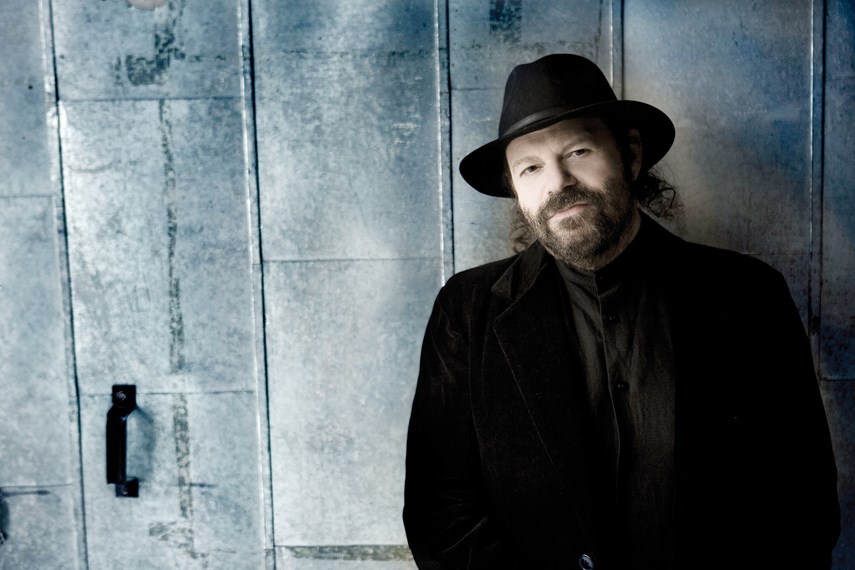Colin Linden, ��- Birch Building, CapU Global Roots Series, Tonight, .
On his very first day in the music business, Colin Linden came out ahead.
He was seven years old and just easing into what would become a lifetime guitar obsession when his older brother offered to sell him a Stella guitar for $5.
“I only paid him $4,” he chuckles. “It took a few years before I was really able to get much of a sound.”
And as he was learning to play he was tuned in to the expansion, contraction and fusion of popular music in the 1960s and early ‘70s.
Linden talks about favourite records like he’s strolling through his boyhood neighbourhood and pointing out the spot he crashed his bike or the doorstep where he kissed a girl. For Linden, those albums were formative experiences.
��He reminisces about the way the crowd-pleasing melodies of James Taylor’s “Sweet Baby James” entered his life at the same time Hot Tuna released their eponymous Hot Tuna album and the Byrds put out Sweetheart of the Rodeo.
But the ultimate landmark for Linden was The Band; the group that “tied it all together,” and became the everything bagel of great music.
“There was no reason to decide whether you were a rock ‘n’ roll artist or a folk/roots/blues kind of artist,” he says. “You could be all of those things.”
Linden is on the phone from Banff where he’s mentoring aspiring musicians and music producers and doing his best to compress the lessons he learned from T Bone Burnett and Daniel Lanois into brief teaching sessions.
The focus should be giving the artist the right circumstances for a definitive, unique performance, with: “the right amount of fireworks,” he says.
Since working as musical director on the TV series Nashville he’s begun to embrace an elder statesman status.
“They were interested in hearing about the old blues players who I knew and some of the older studio musicians,” he says.
It’s gratifying to play a role in keeping the music going, Linden says.
“That’s what those guys wanted me to do,” he says.
In a recollection posted at PeterGuralnick.com, Linden remembers being 11 years old and inhaling the wisdom and second-hand smoke of blues legend Howlin’ Wolf.
Like a lot of rock ‘n’ rollers, Linden got into Howlin’ Wolf backwards, only finding the originator after hearing the tributes of the imitators who covered his songs.
“Even at age 11, I recognized that he was in a different league than his youthful devotees. I could tell that he was the original item,” he writes.
For about three hours Howlin’ Wolf sipped coffee, smoked, recommended records, and answered Linden’s questions
Before leaving, Linden writes, Wolf told him: “I’m an old man now and I won’t be around much longer.�� It’s up to you to carry it on.”
“I’m honoured to be able to tell people about Howlin’ Wolf and to tell people about Sam Chatmon and Muddy Waters and Son House,” Linden says.
He remembers Son House, the influential blues artist who sang “Death Letter,” as well as the record Jack White once identified as the best he’d ever heard: “Grinnin’ In Your Face.”
There was a “tremendous intensity about him,” Linden says, recalling his visits to Son House’s Rochester, New York apartment.
“The most amazing thing was seeing him sing a cappella from two feet away,” he says.
He started chasing the sounds of his heroes, especially when he got his first Martin guitar at 14.
“There was definitely a correlation though between getting a good guitar and working really, really hard at it.”
He remembers practising when he woke up, on his lunch break at school, and for three or four more hours in the evening.
He practised, he riffed, he searched the guitar for ideas.
“When I got into blues I kind of stopped because I got so deeply into just learning stuff.”
But at 16 he understood that carrying the tradition meant creating something new.
“I always knew that for me to get beyond being an interpreter that was something for me to do,” he says. “Pretty well after that I just really did dig in as deep as I could.”
A good assortment of what he dug for will be on display Oct. 19 with set ranging from his most recent album, Rich In Love, to earlier releases like Raised by Wolves and Southern Jumbo. The setlist changes every night, he says.
“You get drawn into certain songs that come from different eras,” he says. “You see what rises and what falls.”
��


